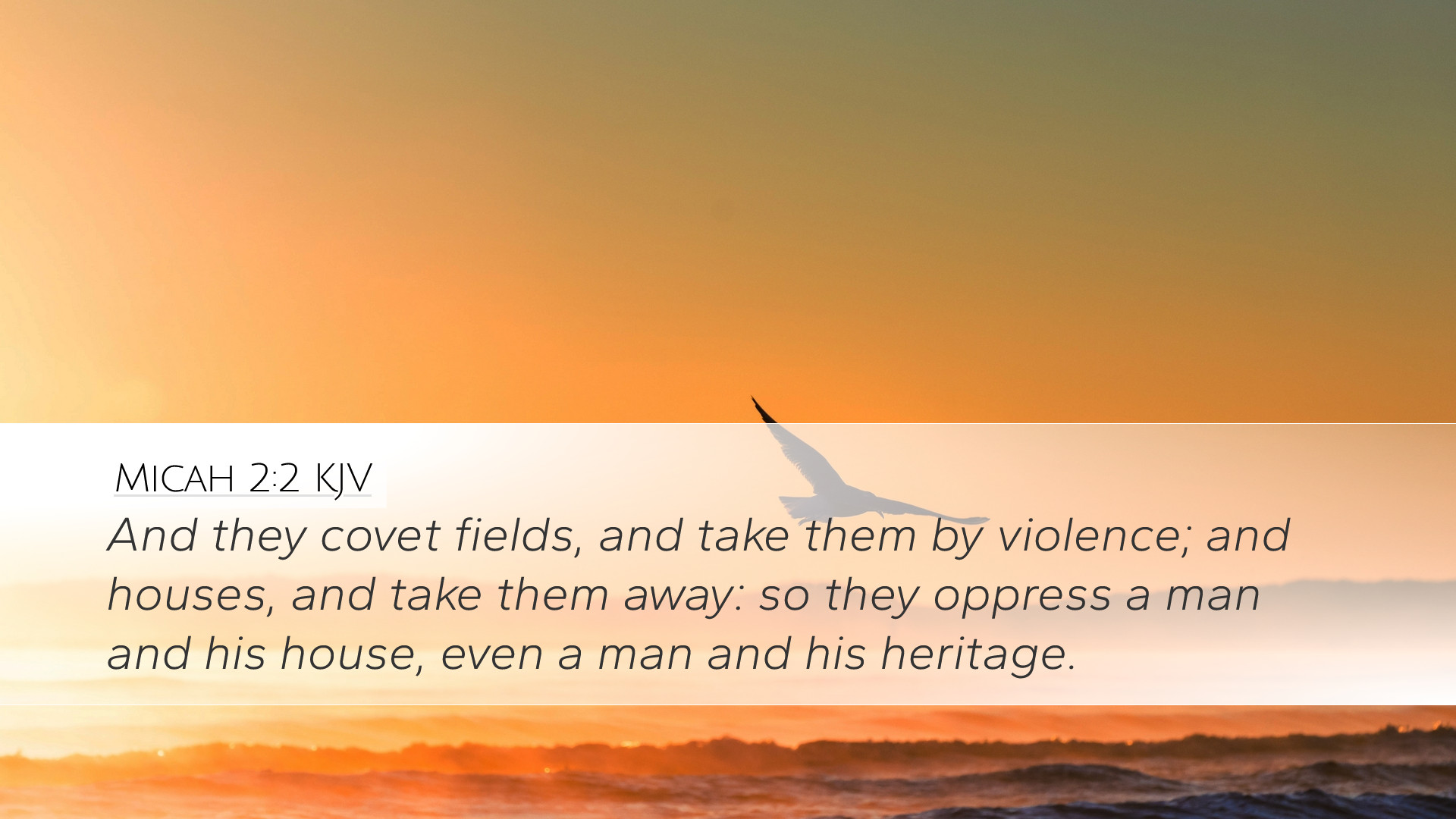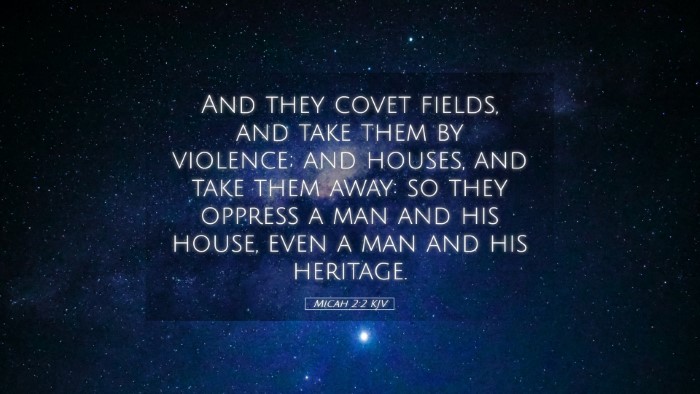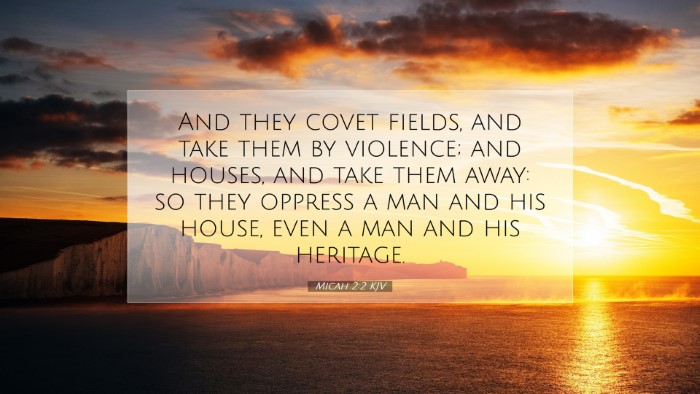Old Testament
Genesis Exodus Leviticus Numbers Deuteronomy Joshua Judges Ruth 1 Samuel 2 Samuel 1 Kings 2 Kings 1 Chronicles 2 Chronicles Ezra Nehemiah Esther Job Psalms Proverbs Ecclesiastes Song of Solomon Isaiah Jeremiah Lamentations Ezekiel Daniel Hosea Joel Amos Obadiah Jonah Micah Nahum Habakkuk Zephaniah Haggai Zechariah MalachiMicah 2:2
Micah 2:2 KJV
And they covet fields, and take them by violence; and houses, and take them away: so they oppress a man and his house, even a man and his heritage.
Micah 2:2 Bible Commentary
Bible Commentary on Micah 2:2
Verse: Micah 2:2 - "And they covet fields, and take them by violence; and houses, and take them away: so they oppress a man and his house, even a man and his heritage."
Introduction
This verse from Micah addresses the serious social injustices perpetrated by the influential and powerful individuals in Israel. The prophecy highlights the covetousness and oppression that were prevalent among the people, serving as a warning and lamentation about the greed that was leading to national decay.
Contextual Background
The Book of Micah is a prophetic text set against the backdrop of a nation in moral decline. Micah, a contemporary of Isaiah, prophesies during a turbulent time when both northern and southern kingdoms of Israel were characterized by corruption, injustice, and idolatry. The prophet seeks to expose the wrongdoings of the elites who exploited the vulnerable and strayed from God’s covenant.
Commentary Insights
1. Covetousness and Violence
Matthew Henry: Henry emphasizes that the desire for fields represents a deeper spiritual problem—a discontentment with God's provision. The violent acquisition of property highlights a wider societal shift towards greed and selfishness, where personal gain takes precedence over justice.
Albert Barnes: Barnes elaborates that the pursuit of wealth, in this case, leads to acts of powerful individuals who use their authority to oppress the less fortunate. This violence is both physical and social, enabling injustices that disrupt the fabric of community life.
2. Oppression of the Vulnerable
Adam Clarke: Clarke points out that the oppression described here is not merely economic but deeply personal. The verse speaks to the stripping away of a man's inheritance, which in ancient Israel was a vital part of one’s identity and sustenance. Clarke urges readers to recognize the dire implications such actions have on families and the heritage of future generations.
This is a reminder that unjust actions have reverberating effects that transcend individual wrongdoing, impacting entire families and communities.
3. Theological Implications
The condemnation of such behaviors reveals God’s concern for justice and mercy. Both Henry and Barnes indicate that God’s judgment is particularly severe against those who oppress the vulnerable and pervert justice. Theological reflection on this topic leads to a deeper understanding of God’s nature—He is a God of justice who advocates for the downtrodden.
Social Justice Themes
Micah 2:2 resonates strongly with contemporary discussions on social justice. The prophet’s words serve as a call for believers today to stand against injustice and to protect the rights of the oppressed. The repeated emphasis on "taking by violence" underscores the moral imperative to resist systems of power that exploit the weak.
Practical Applications
- For Pastors: This verse can be used as a compelling admonition in preaching about the importance of justice and integrity in church leadership and community engagement.
- For Students: The verse serves as a critical point of study in understanding the role of prophets in the Bible, revealing the social responsibilities that accompany faith.
- For Theologians: A theological exploration of this passage can lead to discussions about God’s justice, the nature of sin in systems of power, and the call of the church to be advocates for the oppressed.
- For Bible Scholars: The verse opens avenues for deeper textual criticism and examination of prophetic literature’s response to social issues in ancient Israel.
Conclusion
Micah 2:2 serves as a timeless reminder of the dangers of unchecked human ambition and the consequences of moral compromise. By reflecting on the insights from respected public domain commentaries, we derive profound lessons about justice, the need for compassion, and the recognition of God’s ultimate authority over human affairs. As believers engage with this Scripture, the call for righteousness and justice remains as relevant today as it was in the days of Micah.


